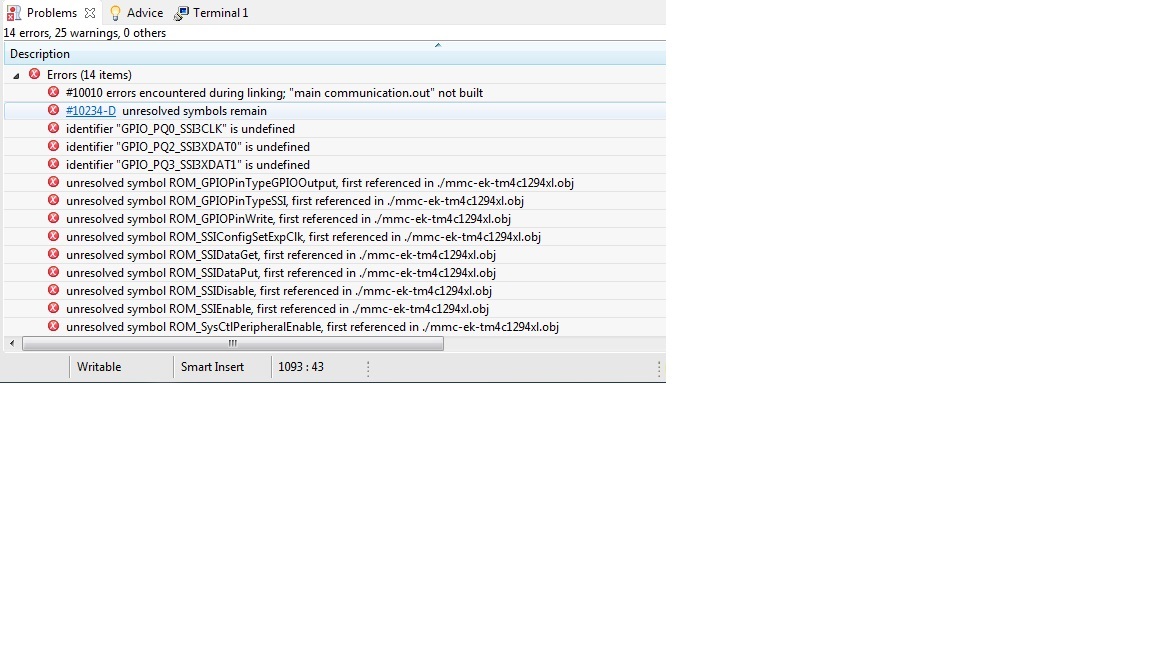Hello All,
I'am trying to compile my program but I'am getting below error
undefined first referenced
symbol in file
--------- ----------------
disk_initialize ./main.obj
f_close ./main.obj
f_mount ./main.obj
f_open ./main.obj
f_write ./main.obj
error #10234-D: unresolved symbols remain
error #10010: errors encountered during linking; "main communication.out" not built
I'am using CCSv6 with tivaware version 2.1.0.12573.





